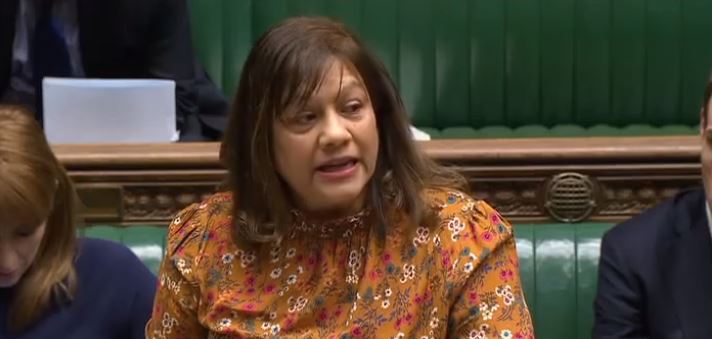- 03/04/2019
- Posted by: Valerie Vaz MP
- Category: News

I responded to a Business of the House motion on Wednesday 3 April 2019 outlining the structure of the debate on the The European Union (Withdrawal) (No 5) Bill.
The Bill seeks to create a legal mechanism whereby the House of Commons can instruct the Prime Minister to ask the European Council for an extension to Article 50.
I voted in favour of the Business of the House motion which was passed by 312 Ayes to 311 Noes.
You can read my speech in full below:
May I start by thanking the right hon. Member for West Dorset (Sir Oliver Letwin) for moving the Business of the House motion to enable the Bill to be considered? I thank him and my right hon. Friend the Member for Normanton, Pontefract and Castleford (Yvette Cooper) for enabling the Bill to be debated.
It is this Government who have created the Brexit deadlock, and the Bill seeks to get things moving. The people and their democratically elected representatives in Parliament want to make progress. When someone such as the hon. Member for Grantham and Stamford (Nick Boles), who was an outstanding Minister and played a leading role in ensuring the introduction of equal marriage, decides to sit as an independent, we are in interesting and difficult times.
It is this Government who have put us in this position. Their red lines were drawn right at the beginning and formed the boundaries for the negotiations. In her Lancaster House speech on 17 January 2017, the Prime Minister set out the Government’s plan for Britain and the 12 priorities that they would use to negotiate Brexit, but there was a lack of information and Parliament was bypassed and ignored until we in the Opposition ensured that there was a meaningful vote.
As hon. Members have said, 17 million people voted to leave the EU. The Government have failed to represent them and they have failed to represent the nearly 16 million people who voted to remain. More importantly, there are many young people—we do this not for us but for the next generation—who did not have a chance to have their voices heard in 2016 but who are now able to vote.
It is right that Parliament has tried a new process of indicative votes as a means of testing the will of the House of Commons on different options relating to one issue. The Bill seeks to run in parallel with that process and create a legal mechanism whereby the House can instruct the Prime Minister to ask the European Council for an extension to article 50. We know that these are unusual times and that we are in a hung Parliament, and that the Government are governing on the basis of confidence and supply and nothing else. Back Benchers from across the House want the Bill to be debated.
In her statement from No. 10 yesterday, the Prime Minister announced that she intends to seek a further extension to article 50, but there are no details about how the decision will be made, including on the length of the extension or what will happen if the European Council puts forward an alternative. The Prime Minister did not explicitly rule out leaving the EU with no deal yesterday, so it is right that the House can have a say on an extension to article 50, which would avoid the UK crashing out without a deal.
The Clerks of the House would not let through any process or procedure that was not acceptable, and I believe that this is acceptable.

